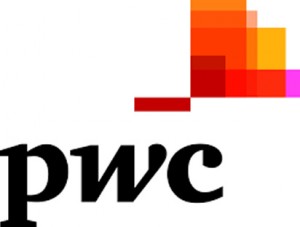PwC Ghana launches Business Benchmarking Survey
 PricewaterhouseCoopers Ghana (PwC Ghana), has launched the second edition of the Business Effectiveness Benchmarking Survey to provide Ghanaian companies the opportunity to identify global best practices and work towards achieving them.
PricewaterhouseCoopers Ghana (PwC Ghana), has launched the second edition of the Business Effectiveness Benchmarking Survey to provide Ghanaian companies the opportunity to identify global best practices and work towards achieving them.
The Benchmarking report 2015 would enable organisations compare themselves with their peers, identify areas for improvement and effect changes necessary.
“Our analysis compares your performance against your industry peers and leading companies across the survey population as a whole,” Mr Michael Asiedu-Antwi, Asssurance Leader PwC Ghana said.
The survey covered areas ranging from governance, control and management information to systems efficiency, talent and resource management.
Other areas include internal audit, governance and compliance, inventory and supply chain and corporate social responsibility and climate change.
In all 40 organisations operating in Ghana across the banking and capital markets, insurance, mining and energy, manufacturing, media, telecommunication and automobile participated in the survey.
Presenting some key findings of the survey, Ms Serwa Atiase Dzogbenuku, Senior Manager PwC Ghana, said results indicated that top performing organisations are providing more useful insight and analysis for management in less time, making more effective use of their resources and managing risk in a more informed and assured way.
“Top performing organisations are significantly more efficient, taking advantage of simplified and standardised business processes to deliver better management information faster on many key aspects from budgeting to working capital management,” she said.
“In terms of risk, leading internal audit functions are broadening their focus beyond the traditional remit of financial risk to take in strategic, operational and governance issues with a more structured approach to risk requirements,” she added.
Ms Dzogbenuku said the competitive benefits not only include more efficient operations, but also an improved ability to sustain profitable growth and capitalise on opportunities.
Women represented around 29 per cent of the workforce of the organisations, which participated in the survey, significantly below the proportion seen in many other markets with a median of 45 per cent.
Ms Dzogbenuku said increasing the utilisation of such a significant source of talent presented real opportunities, especially given that at managerial level, the rate of participation of women is even lower at 19 per cent.
In Ghana, the Insurance and Banking sectors are leading the way by hiring more equal balance of men and women, as compared to other industries.
Ms Dzogbenuku said it is important to close the gender gap through changes in current thinking and management approaches, workforce sourcing and engagement.
On climate change regulation, she said global reforms in climate change regulations are likely to increase the need for companies to report on emissions and the performance of reduction plans.
Ms Dzogbenuku said while local regulations did not require reporting on sustainability performance as pertains on the global front, multi- national companies operating in Ghana report in accordance with relevant regulations in their mother countries.
The survey showed that 69 per cent of respondents expect to be required to report locally in the future.
Although most companies are aware of their responsibilities, few are actively factoring the impact into their business strategies.
Mr Ishmael Yamson, Chairman of Ishmael Yamson and Associates, urged local businesses to link governance procedures to performance to ensure growth.
He said following rules and regulations must not be seen as an end in themselves but an exercise that would enhance growth of the businesses.
Mr Vish Ashiagbor, Country Senior Partner PwC, said the goal of the survey was to leverage the findings as a reference point to support industry and position the findings as a measurement tool to promote learning and information sharing.
He said there are plans to conduct the survey annually to serve as a benchmark for improvement and sustainability in business effectiveness.
Source: GNA
